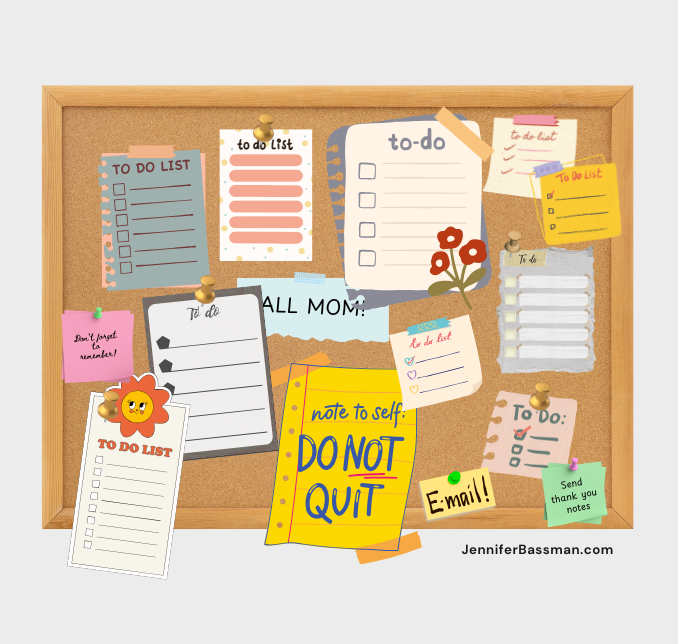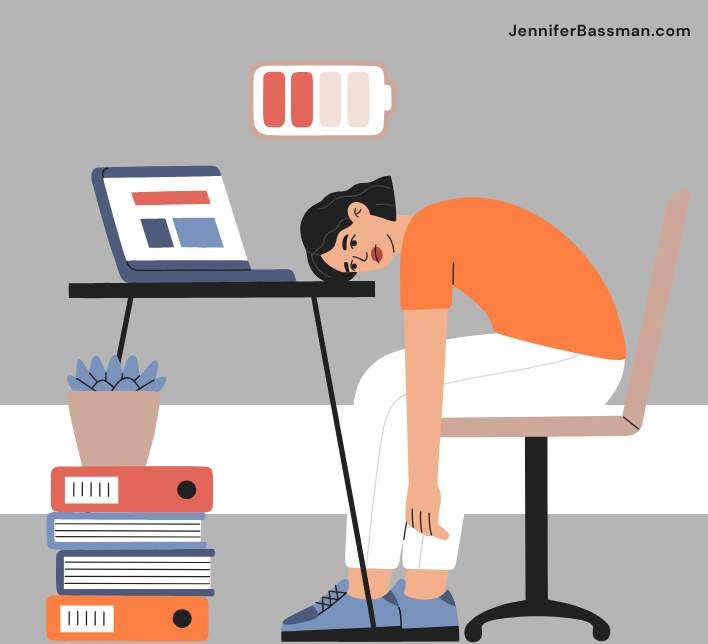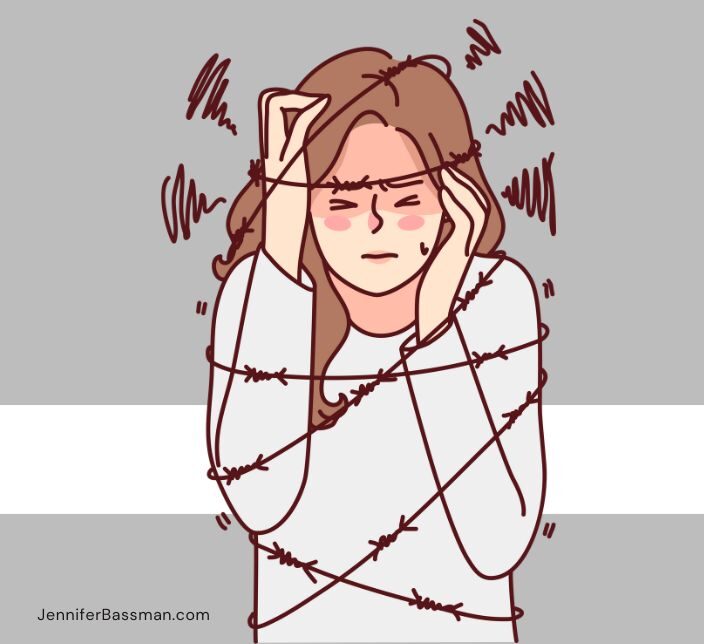My mom recently retired and has moved nearby and we’ve had some of the best, deepest, connecting conversations that I can recall.
Through my pre-teen and teenage years, my mom was learning to run her company. Through my adult years, she was focused on the stress and productivity of that same business. I always knew my mom was stressed out and running on fumes – but she didn’t.
This was a stunning revelation for me. How do you not know you are stressed beyond your limits and hurting yourself in the process?
How did she not know??
(I didn’t ask my mom this question. I haven’t figured out a way to ask it without sounding judgmental or getting grounded for being a “smart-ass.”)
Our conversations have me wondering if I – or any of us – are fully aware of when we feel stress?
Stress Does Happen Without You Noticing
Stress is your body’s way of coping with or responding to a demand or a threat. When your body senses a threat, it automatically begins to protect itself using the “fight-or-flight” reaction or a “stress response.”
When you are in busy mode or on-the-go, you aren’t always mindful of how you are feeling. You don’t recognize that you are feeling stress or are already stressed out because your attention and focus is elsewhere. So, yes, it’s easy for anyone to not notice they are experiencing stress.
While you may not be conscious of a threat or demand, your subconscious picks up on it and your body runs away with its natural response(s). That’s why some people can say, “well, I don’t feel stressed.”
(We all know “those people,” and they probably don’t sleep upside down, hanging from the ceiling.)
Our bodies have natural defenses that kick in to protect us from stress. It’s those natural defenses are often what make stress unnoticeable because they are what keep us focused, energetic, and alert. Our adrenaline kicks in to keep us on our toes during a presentation, or helps us concentrate while studying for an exam.
It’s when the unnoticed stress stops being helpful and starts causing major damage to our health, mood, productivity, relationships, and quality of life, that the constant strain becomes harmful.
This is usually when you start down the path of burnout.
Constant Tension? I Always Feel This Way!
My mom had normalized her chronic stress. It had become a constant presence in her life that she just got used to. So, instead of acknowledging it so she could remove it, she found ways to work with the stress so that the typical stress response of overwhelm, or heart palpitations, or fear didn’t seem so bad.
When stress feels normal, you have entered a danger zone mentally, physically, and behaviorally. You are experiencing chronic stress.
Your body and brain are not designed to cope with prolonged stress, so after a while, they start to malfunction and break down.
Chronic (prolonged) stress can cause:
- Psychological problems like burnout, anxiety disorders, or depression
- Physical problems like type 2 diabetes, stroke and cardiovascular disease
Even though you don’t acknowledge stress, your body does, and the harmful effects of stress still take place.
Unusual Signs of Stress
Sometimes people experience stress-related symptoms that you don’t always associate with stress. These are symptoms you may dismiss as no big deal, fleeting, or just part of life. These symptoms can include:
- Hair loss or prematurely graying hair
- Increased sensitivity to pain
- Hot flashes
- Heightened sense of smell or ringing in your ears
- Flatulence, bloating, increased urination
- Skin problems
- Nausea
- Desire to nap at unusual times
- Experiencing a “ball of emotions” – rage, frustration, loneliness, fear all at once
- Become frozen or immobilized
- Light-headedness, feeling faint
- Eat your feelings, crazed appetite
If you relate to any on this list, take a moment to consider if they really are normal things to experience daily, or if it is sign that you are experiencing chronic stress.
Below, I will list typical signs and symptoms on stress. Be sure to review them to see if and how many you may identify with or have normalized in your daily life.
Don’t Be Jennifer or Her Mom
If you are familiar with my story, you know I went through severe burnout. It took me years to recover. My burnout is a direct response to the chronic stress that I allowed my body and mind to experience for many years. In some ways, I wore my stress – because I thought all business owners were supposed to be stressed out – as a badge of honor. In my ignorance, I believed stress meant I was owning and running a business correctly.
As my mom and I discussed her stress, she realized she has also been experiencing burnout for a long, long time. Perhaps it’s generational, but my mom had no idea that burnout is a real thing.
The more we talked, the more I could see the relief washing over her. It was similar to what I felt, when I learned about burnout – that someone else finally understood! She described fears and fatigue that are very similar to the way I felt.
We both operated under the premise that we just needed to keep moving forward, maybe the stress would go away.
To answer my earlier question: can you be stressed out and not notice?
Absolutely.
I think I was asking the wrong question. What I should be asking: why don’t you know you’re stressed out and heading for destruction?
SIGNS AND SYMPTOMS OF UNDIAGNOSED STRESS
Physiological:
- Irritability
- Poor concentration
- Poor decision-making
- Memory loss
- Mood swings
- Chronic worrying
- Anxiety
- Low mood
- Nightmares and persistent bad dreams
Physical
- Cold hands
- Shakes and trembling
- Shortness of breath
- Racing heartbeat or heart palpatations
- Lower-back pain
- Tension headaches
- Vulnerability to colds and infections
- Loss of libido
Behavioral
- Passive or aggressive behavior
- Procrastination
- Increased alcohol or caffeine consumption
- Cravings for sweet, sugary snacks
- Compulsive or impulsive behavior
- Poor time-management
- Accident prone






